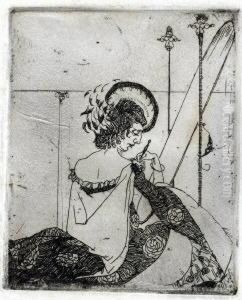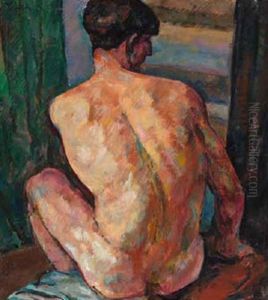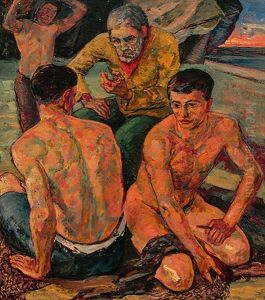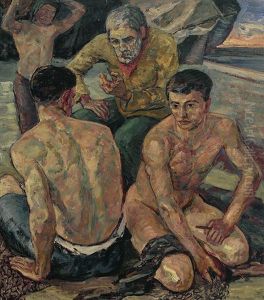Hermann Troeltsch Paintings
Hermann Troeltsch was not an artist in the traditional sense of painters or sculptors, but he was an influential figure in the realm of philosophy, theology, and social thought. Born on February 17, 1865, in Haunstetten, which is now part of Augsburg, Bavaria, he grew up in a time of significant intellectual and cultural change in Germany. Troeltsch is primarily known for his work in the field of theology, his contributions to the understanding of the philosophy of history, and his analysis of the cultural implications of modernity on traditional religious beliefs.
Troeltsch studied theology at the universities of Erlangen and Göttingen and was influenced by the work of Albrecht Ritschl, among others. He became a professor of systematic theology at the University of Heidelberg in 1894, where he continued to develop his thought. His most influential works include 'The Social Teachings of the Christian Churches' ('Die Soziallehren der christlichen Kirchen und Gruppen'), which examined the various ways in which Christian thought had responded to social issues throughout history, and 'Historicism and Its Problems' ('Der Historismus und seine Probleme'), where he addressed the challenges that historical relativism posed to theological and philosophical absolutes.
Troeltsch's ideas straddled the lines between theology, philosophy, and sociology, and he was a key figure in the development of liberal Protestantism. He engaged deeply with the problems of historicism—the idea that concepts and values are rooted in the historical contexts from which they arise—and sought a way for religious faith to remain relevant amidst the changes brought by modernity. He emphasized the importance of historical context in understanding religious and cultural phenomena, which became an important methodological principle in the study of religion and history.
Throughout his career, Troeltsch was concerned with the tension between faith and reason, tradition and innovation, and the individual and society. His work attempted to reconcile Christian theology with the modern scientific and historical consciousness. He was a member of the Kant Society and the Prussian Academy of Sciences, and his wide-ranging intellectual interests also led him to engage with issues of politics and ethics.
Hermann Troeltsch passed away on February 1, 1923, in Berlin. Although not an artist in the typical sense, his intellectual contributions have had a lasting impact on the study of religion, history, and society. His works continue to be studied by theologians, historians, and philosophers interested in the intersection of faith and culture in the modern world.



